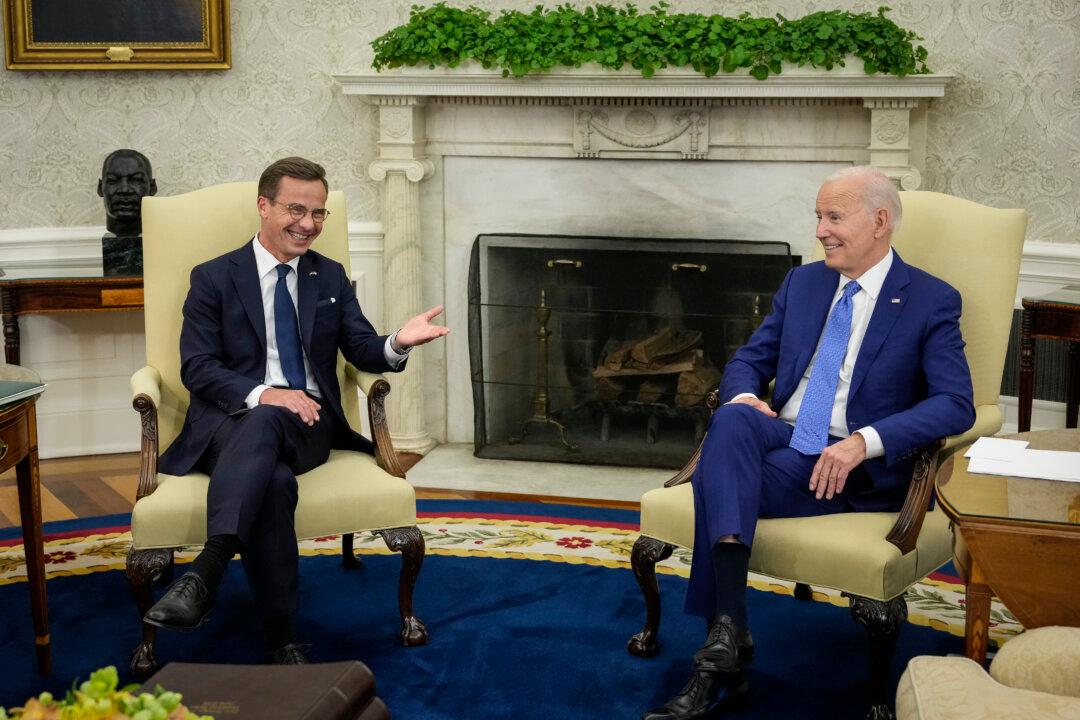WASHINGTON—President Joe Biden welcomed Sweden’s Prime Minister Ulf Kristersson to the White House on July 5 to voice support for the Nordic country’s NATO membership ahead of the military alliance’s historic summit next week.
Sweden has expressed a strong desire to join the North Atlantic Treaty Organization (NATO), citing increased security concerns following Russia’s invasion of Ukraine last year. However, Hungary and Turkey have been the main opponents of Stockholm’s application.





